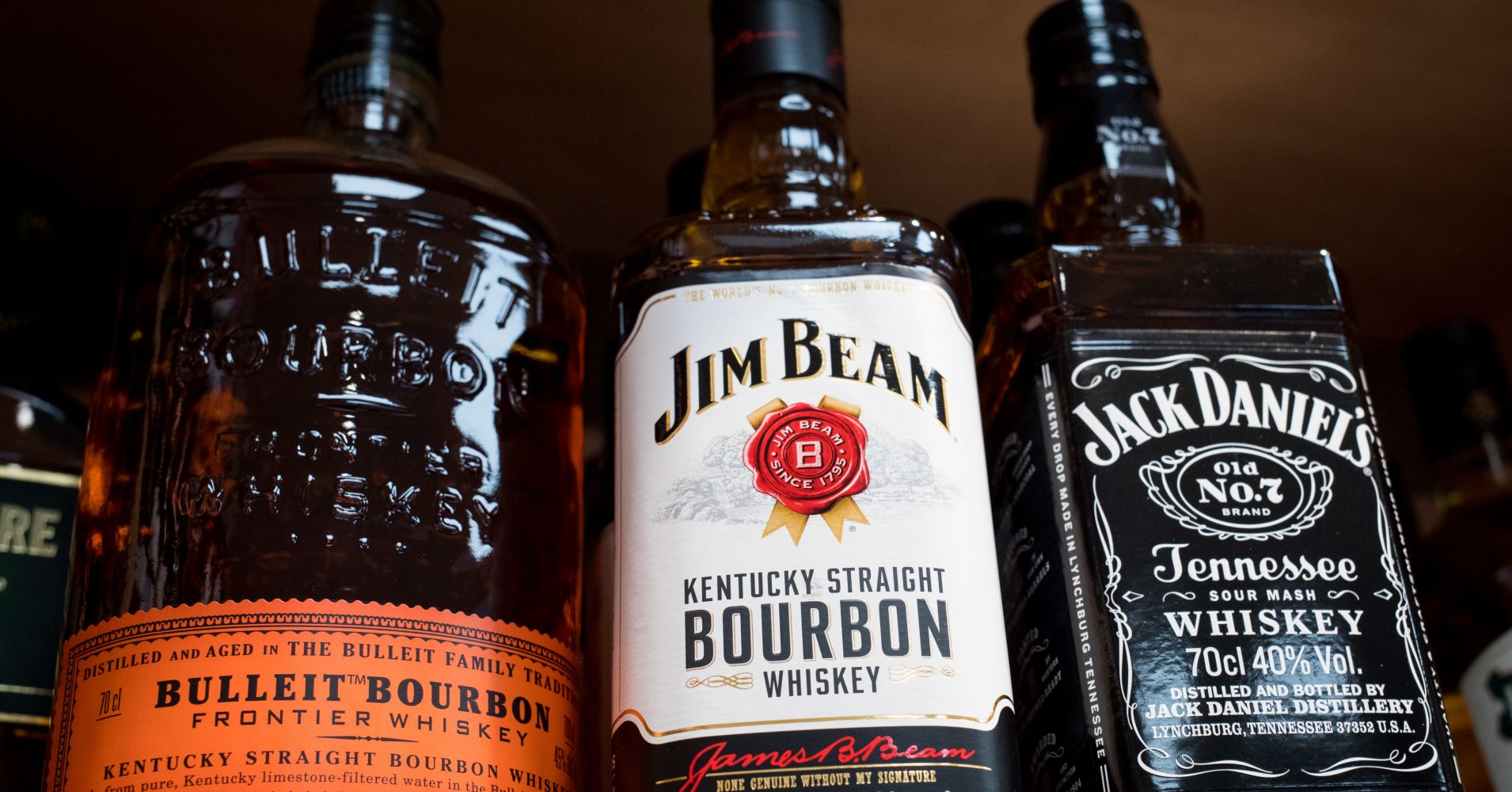
China’s new 25 percent tariff on U.S whiskies took effect Friday, and America’s bourbon industry is already starting to feel the squeeze.
The Chinese tariffs — retaliation for the Trump administration’s tariffs on $34 billion in Chinese goods — come on top those levied by Europe, Mexico and Canada. The new whiskey tariffs are hitting states like Tennessee and Kentucky, solid red states, the hardest. Trump carried Kentucky by 62.5 percent and Tennessee by 60.7 percent in 2016. Almost all, 95 percent, of the world’s bourbon is made in Kentucky. Jack Daniels, however, is made in Tennessee and is the most popular American whiskey in the world.
Bourbon is the last true signature industry for this state, Fred Minnick, the author of ‘Bourbon: The Rise, Fall and Rebirth of American Whiskey,’ told CNBC.
“When someone comes to Kentucky, they’re not thinking about fried chicken anymore, they’re thinking about bourbon,” said Minnick.
“And when you start tariffing it, when you start taking away jobs and hurting it from being exported to Spain’s, UK, Mexico, Canada, to wherever, you’re essentially gut-punching the state of Kentucky,” he added.
American spirits exported to China grew by almost 1,200 percent between 2001 and 2017, according to the Distilled Spirits Council. Whiskey made up the majority of U.S. spirits exported to China, accounting for $8.9 million of liquor exports to the country last year. American whiskey, in fact, accounted for more than $1 billion of the $1.6 billion in total U.S.-made spirits sold overseas last year, according to the council.
“Imposing 25 percent tariffs on U.S. whiskeys could put the brakes on an American export success story,” said Christine LoCascio, senior vice president of international trade for the council.
American whiskies have been chipping away at Scotch’s dominance in China, and had 9 percent of the Chinese whiskey market in 2017, according to industry tracker International Wine and Spirits Inc. (Scotch accounted for 87 percent, down from 94 percent in 2012.) Bourbon and Scotch are technically both whiskies, but their names are based on where they’re distilled, among other subtle differences. Bourbon is only made in America while Scotch is made in Scotland.
For whiskey giants like public Brown Forman, which owns Woodford Reserve, Jack Daniels and Old Forester, China is important to future growth.
“We are proud to be building our brands with Chinese consumers,” the company said in a statement. “Accordingly, we welcome the continued efforts of the Administration and the Chinese government to find solutions to the broader trade issues between them.”
At the other end of the spectrum, Kentucky Peerless Distilling Co. — a 5th-generation, family-owned distillery in Louisville, Kentucky — also has big plans for international growth.
President Carson Taylor said the company plans to expand its exports to up to seven countries in a few years, but there’s a lot of uncertainty.
“I have two boys, hopefully, they are going to want to be distillers and be sixth-generation,” said Taylor. “We’re not just building this as the next place to sell out to one of the big players so what we do and how we export and how we build this business now, definitely affects our future.”
The new tariffs are throwing a wrench in the works for Taylor’s and other small businesses in Kentucky, as well as their investors.
“There’s more than a billion dollars of investment in Kentucky bourbon,” said Minnick. “A lot of that investment has been coming to Kentucky because people are very excited about exports.”
Tariffs won’t just affect the distillers and their investors: The whiskey industry supports 17,500 jobs in Kentucky, according to a report from the Kentucky Distillers Association. They include grain farmers, manufacturers of the glasses and the oak barrels, the coopers who make the barrels and entrepreneurs building bourbon tourism businesses.
“Bourbon is at a critical moment right now,” said Kaitlyn Soligan, co-founder of Matson & Gilman, a company that runs high end tours of bourbon distilleries.
They worry about the trickle-down effect of tariffs- forcing the big bourbon businesses to contract- and potentially putting the small craft distillers out of business.
“Damaging bourbon’s ability to reach a global audience is immediately going to damage businesses like ours, trying to attract those tourists,” said Matson & Gilman co-founder Nicole Stipp.
Kentucky businesses — large and small — are bracing for whatever hangover a lengthy trade war brings.
